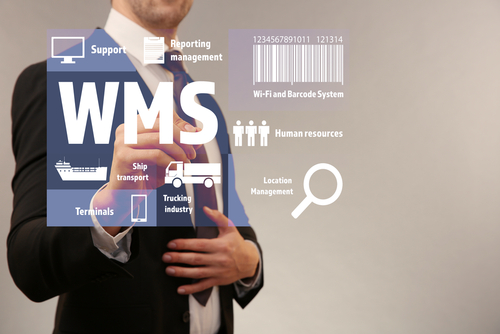
A warehouse management system (WMS) is quickly becoming essential in today’s supply chain industry. A WMS is a piece of software that guides the day-to-day functions of your facility, including order tracking, shipping and receiving and inventory management. Instead of manually reporting and tracking orders, the system will help you automate this process, enabling you and your team to focus on the task at hand.
Currently, the eCommerce sector is the biggest user of WMS technology. With so many orders coming and going, the technology will help you better meet the needs of your customers and prepare for the unexpected.
Going on Autopilot
The WMS will essentially streamline your to-do list in the warehouse. There are so many moving parts and variables in this business, but the software is designed to cut through the noise so you can focus on what matters most. Every order will be processed through the system, sending your workers specific instructions on which items need to go out for delivery. It will also notify you when these packages have been picked up and delivered and if there were any delays along the way.
USE METAL STORAGE CONTAINERS TO PROTECT YOUR PRODUCT
The system also tracks incoming and outgoing orders, so your workers will be ready to receive this merchandise. Every aspect of your facility will run like clockwork, meaning you can focus on improving your operations instead of getting products out the door.
You can also use this technology for employee training. Once you have a sense of how your employees move throughout the space, you can instill this knowledge in new recruits.
Continuously Improving Your Operations
Using a WMS doesn’t mean you don’t have to manage your warehouse. In fact, this technology is here to make you more effective as a supply chain manager.
STACKABLE WIRE BASKETS KEEP YOUR WAREHOUSE ORGANIZED
The system will collect data on virtually every aspect of your operations so you can look at the bigger picture. As your employees load and unload packages, you can examine the long-term trends, including how long it takes your workers to fulfill orders, how many of your packages tend to go missing and how often your packages are delayed.
Use this knowledge to look for bottlenecks in the fulfillment process. Once you identify potential issues, you can come up with a feasible solution.
For example, if some of your merchandise gets damaged on the road, use bulk metal storage containers to add another layer of protection to your shipments.
If product picking is taking too long, use stackable wire baskets to keep your inventory visible in the warehouse. Your workers can grab what they need without having to look inside the container.
You can also use this information to replace your existing equipment if it’s doing you more harm than good. For example, track performance statistics to compare the differences between a skid vs. pallets. One may better serve your merchandise, but you’ll never know the difference unless you monitor and compare this important data.
Better Customer Relations
A WMS can also help you show your customers you care. The system will help better track and monitor every order so you can make sure it arrives on time. Use delivery records to improve the distribution process. You may be able to deliver your products faster by storing them in offsite locations. You may discover alternative routes to your customers and vendors.
If one of your customers has a question or a complaint, the system will forward this information. You can then address these concerns as you manage existing orders. This reduces the chances you’ll make the same mistake twice.
At the end of the day, using a WMS is like putting a second pair of eyes on your business. You can manage and track every detail yourself, so use a system that will automatically store and log this data on your behalf. Many systems will store this information in the cloud and you and your team can access it from any location as long as you have access to the internet. This makes it easier to manage your operations from afar. You won’t have to worry about losing track of important details or falling behind on important trends.
Use a WMS today to unlock the full potential of your eCommerce business.

